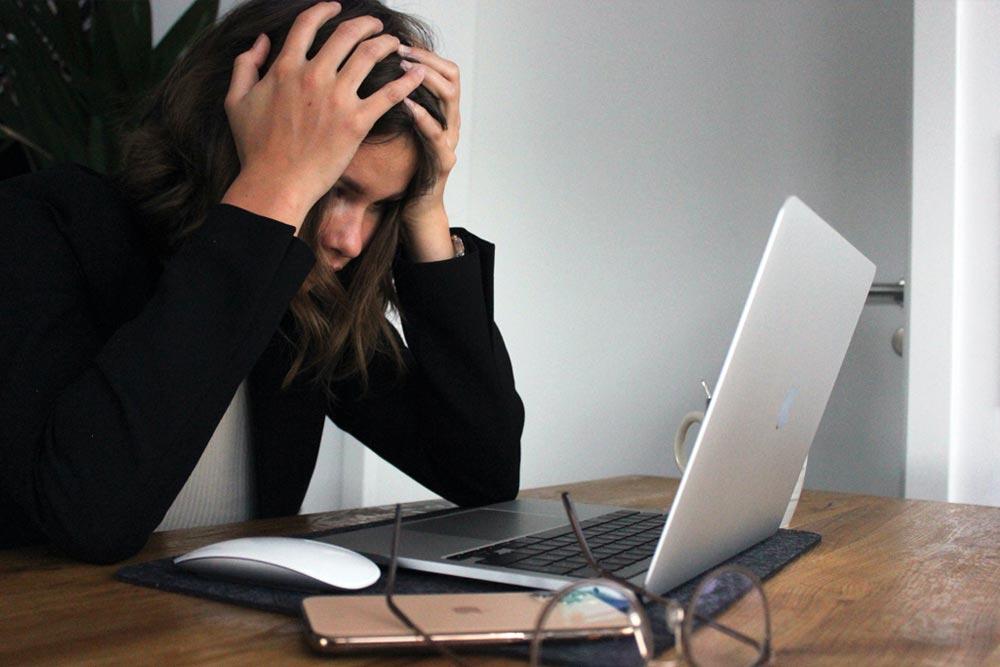How to Get Back to Living Your Most Meaningful Life
There is no doubt that the pandemic has taken a toll on all our lives. The isolation and lack of connection that have occurred because of the pandemic is staggering.
Navigating how to spend time with family and friends has been a challenge for many individuals. The lack of freedom to go where we want and be with whom we want has been an adjustment. Working from home has its benefits, however, the loss of “decompression time” during travel home has led many people to have increased levels of stress and burnout. Parents have needed to manage limited childcare options or even working while supervising their children, which has felt almost impossible at times. Unfortunately, these are just limited accounts of the challenges we have had to overcome.
Statistically speaking, rates of depression and anxiety quadrupled between April 2020 and August 2021. According to the American Psychological Association: depression rates rose from about 6.5% of U.S. adults reporting symptoms to about 27%; anxiety rates increased from about 8% of U.S adults reporting symptoms to about 34% during the same time frame.
Those struggling the most with depression and anxiety stemming from the pandemic have been males, Asian Americans, young adults, and parents with children in the home.

As we do our best to move forward and get back to the lives we have so dearly missed, it is important to listen to our thoughts and emotions during this process. Included is a framework to assist you in managing the potential challenges of reintegrating into everyday responsibilities and activities while focusing on creating a life that is fulfilling and meaningful.
Framework For Managing Challenges
1. Understand and Prioritize Your Mental Health Needs
Over the past several years, mental health concerns have been talked about more frequently, breaking down the stigma and allowing all of us to be honest about prioritizing our mental health. Prior to the pandemic, depression, anxiety, and ADD/ADHD were already present in our society at high levels. It is no wonder that many of us have reached our breaking points at some time over the past two years.
On a positive note, there are more resources available to encourage society to turn inward and be more vocal about mental health needs. Employers and educators are being more understanding about the necessity of mental health days. Healthcare professionals are highlighting the importance of a healthy work/life balance. There are more counseling services available and there are even more apps in the market that focus on self-care.

I encourage you to take a moment to turn inward and complete a self-assessment to obtain an accurate picture of your current functioning. Think about your feelings and behavior over the past two weeks. Using the following response scale: Not at all, several days, more than half the days, or nearly every day as yourself the following questions:
- How often have I been feeling down, depressed, or hopeless?
- How often have I had little interest or pleasure in doing things?
- Have I had any trouble falling asleep, staying asleep, or sleeping too much?
- How often have I been bothered by feeling tired or a lack of energy?
- Have I had a poor appetite or struggled with overeating?
- Have I had trouble concentrating on things?
- Have I had an anxiety attack or extreme sense of panic?
- How often have I been bothered by feelings of nervousness or anxiety?
- How often have I been bothered by not being able to stop or control worrying?
- How often have I been bothered by having trouble relaxing?
- How often have I been bothered by becoming easily annoyed or irritable?
**If you prefer to take the self-assessment online, it can be found at https://www.nhs.uk/mental-health/self-help/guides-tools-and-activities/depression-anxiety-self-assessment-quiz/
REMEMBER THAT THE overarching goal is to get back to your most meaningful and fulfilling life.
When thinking about your responses, have you identified a potential problem area that needs to be addressed? If you have answered that either anxiety and/or depression have been more present in your life, I would encourage you to think about your options for mental health care.
2. Steer Clear of Comparing Yourself to Others
Everyone is going to heal and move forward at their own pace. When we compare ourselves to the progress that someone else has made, it takes away from our individual experience. What is right for you may not be right for your friend or family member. Healing from anxiety and depression is not a race. Take special attention to focus on your own progress.

Completing regular check-ins can help you move in the direction of your goals. For example, if you are struggling with being in the presence of strangers in a large group setting, it is okay to take small steps to gain confidence in the action. You may want to start with keeping your distance from the group and then slowly begin to integrate. Perhaps you choose to continue wearing a face covering when in a crowded group setting; the important thing to note is that you have the choice to do so until you feel fully comfortable.
Additionally, some gentle pushing of yourself can and will be normal to make progress. Remember that the overarching goal is to get back to your most meaningful and fulfilling life.
3. Be Kind to Yourself

In addition to avoiding comparison, treating yourself with kindness and grace is essential. If there is an action or event that you are not quite ready to dive into, try your best to recognize your anxieties and avoid passing judgment on yourself. Everyone is trying to do the best that they can within the current circumstances. Make sure to celebrate your accomplishments and continue to strive for strong connections with others.
4. Use Anxiety Management Techniques as Needed
It is normal to feel some level of anxiety when getting back to activities we have refrained from over the past two years. When the anxiety does appear, ask yourself, “What do I need in this moment to help me feel calm?”

Engaging in a simple breathing technique such as 4 Square Breathing can help to decrease heightened emotions. To practice this technique, you will breathe in for 4 seconds, hold for 4 seconds, breathe out for 4 seconds and hold again for 4 seconds.
If extra energy needs to be expelled, getting active and engaging in exercise will help to build endorphins and bring a sense of positivity over your body. Utilizing one of the mindfulness apps can also be quite helpful. There are many variations, so choose the one that makes the most sense for you.
I would also suggest taking time to practice daily gratitude. Finding three good things about your day, every day, is an evidence-based technique that is proven to improve mood when done consistently.
Living in the face of uncertainty is something that will undoubtedly cause stress, however, we can take steps to lessen the long-term negative effects. As discussed above, it is important to take note of how you are thinking and feeling and to respond appropriately. Don’t be afraid to ask for help, we are all in this together and there is already a light at the end of the tunnel.
Our clinicians are available to discuss the ways the pandemic has impacted your life and will be able to tailor a specific treatment plan to help you get back to living your fullest life.

Don’t hesitate to reach out to Ammirati Counseling to ask and inquire about support services that you can receive to help with overcoming feelings of depression, loneliness, stress or anxiety.
Ammirati Counseling is a boutique counseling group with an office in Bannockburnn serving Chicago. Therapists also offer private therapy via remote online. They provide comprehensive care to children, teens, adults, couples, families, and the LGBTQ community.
Terri specializes in empowering clients to strengthen their relationships. She works with all aspects of relational distress and provides solution-focused therapy.
- Gottman Couples Therapy: Key Principles And What You Can Do Now - June 17, 2024
- Healing From Trauma: 3 Ways To Take Control - June 3, 2024
- Signs & Symptoms of Depression In Men - May 20, 2024

